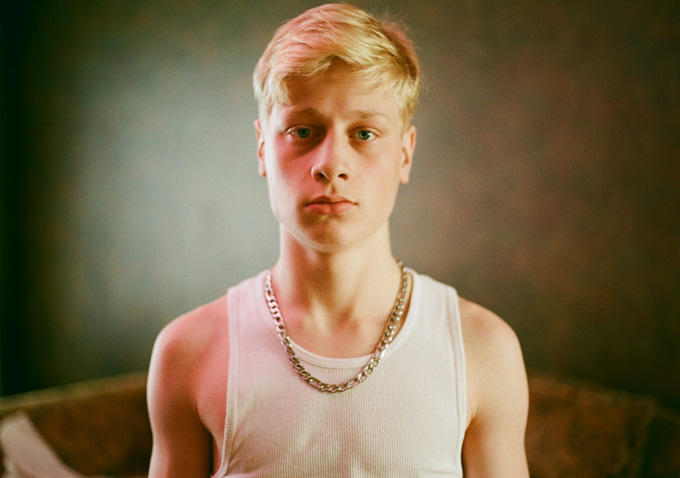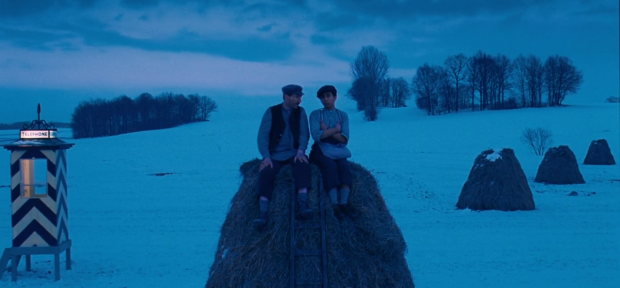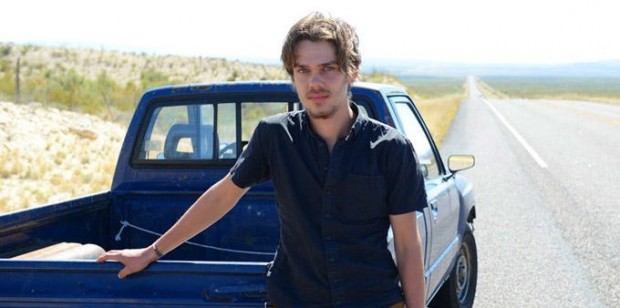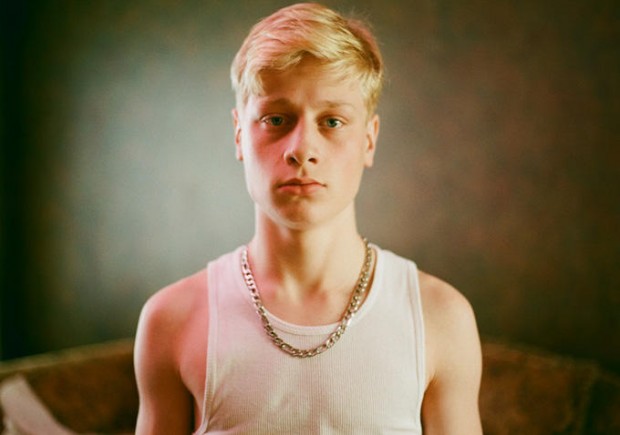
Top 10 lists from critics groups usually have a tendency to eliminate oddities and mellow out the field. But when you have personal selections, like many of my colleagues at The Film Stage are constructing, anything can sneak in. While you’ll likely see some familiar selections here, I think I have one or two of those oddities that will hopefully lead to people seeking them out and finding something worthwhile. I have yet to catch a few of the big-name releases simply because they haven’t screened in my area, but I feel that, with over 250 new films screened in theaters or through screeners, I have witnessed enough of the cinematic offerings this year to give a solid viewpoint. Enjoy my list and realize that, despite none making my list this year, I do love animated films.
Honorable Mentions

10. The Grand Budapest Hotel (Wes Anderson)
Wes Anderson has a unique voice that, by this point, viewers are either going to enjoy or outright reject. He’s a divisive filmmaker because his quirky charms rely on a sense of humor that will define the hyper reality he creates. While The Grand Budapest Hotel has nearly all of his key attributes, it also deftly adds a sense of real menace through Willem Dafoe’s character. There’s also a beautiful current of nostalgia running throughout, while the use of different aspect ratios and painted backgrounds make this one of the most visually intriguing films in his pantheon. I was endlessly charmed and moved by the film, and rarely do I get both from Anderson’s work.
9. The One I Love (Charlie McDowell)
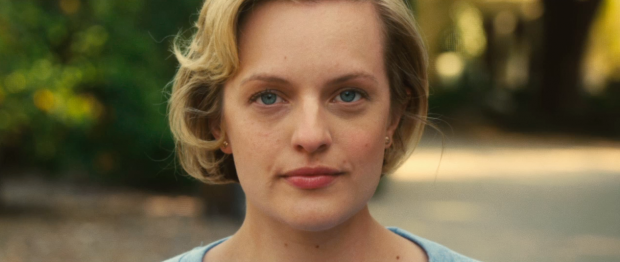
Blending the romantic comedy and a fantasy element with effortless aplomb, The One I Love is a striking feat for feature-debut director Charlie McDowell and screenwriter Justin Lader. The duo seem to feed off of each other, and they’ve come up with a premise that is as slick and efficient as it is surprisingly deep. Sure, the film plays in ambiguities, but the performances from Mark Duplass and Elisabeth Moss elevate this charming film that should turn into quite the debate if watched amongst friends or family.
8. Force Majeure (Ruben Östlund)
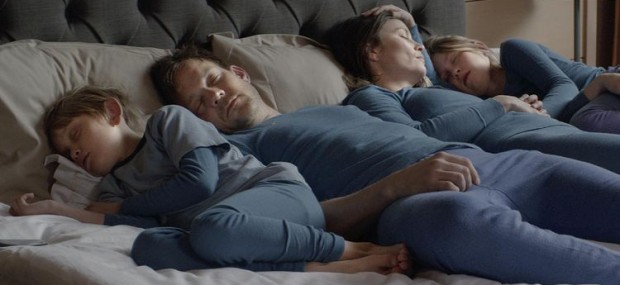
By now the hype for Force Majeure is akin to the controlled avalanches that pepper the backdrop of this insightful relationship dramedy. While a couple and their two children are vacationing in the French alps, an unfortunate event reveals a character trait in the husband that drives a wedge between the couple. There is a feverish haze hanging over the characters in this idyllic setting that helps to increase the all-too-familiar unease of when a relationship is on the brink. The film smartly builds its drama to the point that when things finally boil over you want to search for an escape that never comes. While it might have gone down the route of the expected, it’s instead twists and turns that make this a welcome exploration of masculinity and what it takes to make a relationship work.
7. Mommy (Xavier Dolan)
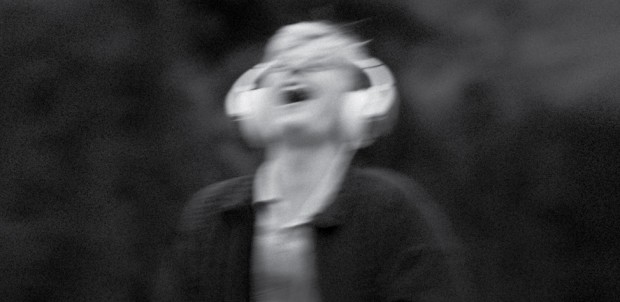
Writer-director Xavier Dolan’s characters in Mommy rarely feel like people you’d want to spend any length of time with, which is precisely why the film is so affecting. Each have their own unique quirks that make them entirely human and draw you in. You root for them to succeed, and Dolan takes a twisted joy in breaking them in various ways. This is a richly affecting film about the notion of controlling your own life when your child, your responsibility, seems hell-bent on derailing it. Easy answers aren’t given, and there’s a key moment in the film that rings incredibly hollow — a feeling taken away just when you actually bite into the lure. Dolan’s work is moving and painfully beautiful, with astounding performances throughout.
6. Whiplash (Damien Chazelle)
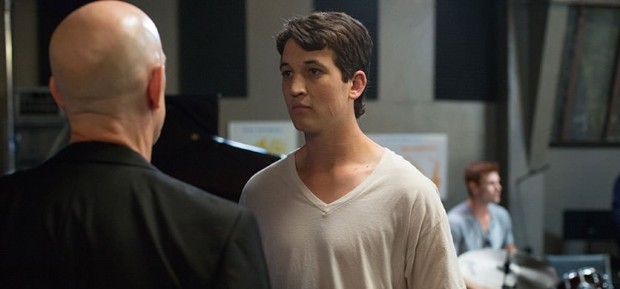
What does it take to be truly great at something? Whether it is the idea of 10,000 hours popularized by Malcom Gladwell or something simply God-given, the idea is rich and fertile territory for fiction and non-fiction alike because there is no precise answer. In Whiplash, director Damien Chazelle explores the idea of perfection in the world of jazz drumming, an odd setting to most people’s minds. Yet here he makes it plain that, with the right mentor, anything unassuming can become intensely confrontational. J.K. Simmons plays the maniacal teacher and band leader Terence Fletcher at a prestigious music school where Miles Teller’s Andrew hopes to become first drum. Blood, sweat, tears, and relationships are all things Andrew is willing to part with in his steadfast determination to become one of the greatest jazz drummers under Fletcher’s watch. With precise camerawork, we become familiar enough with drumming that we can recognize the high bar and the way Andrew sets out to achieve it. Intensely shot, with a focused and rapturous finale, Whiplash is a film that will have your heart racing and make you wonder how far you might push if you thought greatness was on the horizon.
5. Under the Skin (Jonathan Glazer)
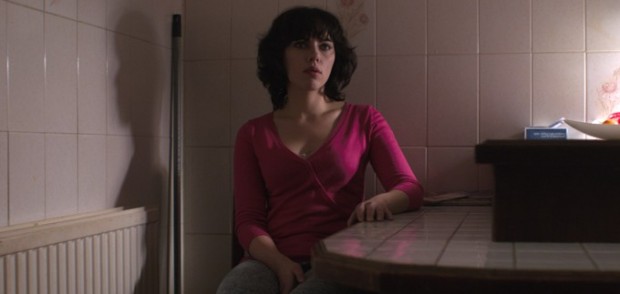
There is an ethereal quality to Under The Skin that will surely turn off many viewers. But those willing to unlock the mysteries within Jonathan Glazer’s masterwork will be rewarded with a film that showcases what a director can achieve with an unflinching vision. In this sci-fi film focusing on an alien creature (presented in the form of Scarlett Johansson) prowling the streets of Scotland in search of males she will seduce and devour, we are given few details. There is no voice-over and rarely are things explained — we are instead discovering the reality alongside Johansson’s character. The film nearly plays out its relentless ambiguity before switching gears after a confrontation with an unexpected man. Skin is a focused and ambitious narrative on the nature of human sexuality and what it means to be physically attractive, and there are heartbreaking moments that highlight the fragility of life throughout. With a relentless and haunting score, this is a disturbing work of cinema that will leave you breathless.
4. Enemy (Denis Villenueve)
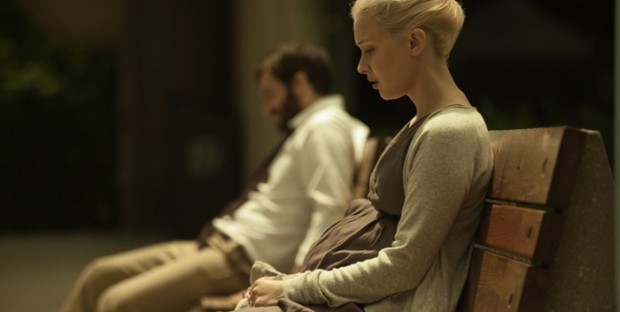
A thriller by every definition, Denis Villeneuve’s Enemy is a relentless exploration of the nature of repetition. Jake Gyllenhaal proves that he can be a one-man act by playing both the history professor Adam (bland and unassuming) and the actor Anthony (suave and put-together), who realize that they are doppelgängers, setting off a string of events that rarely allow you to keep track. Villeneuve doesn’t announce which character is which and, as their lives begin to intersect, you have to pick up on subtle and not-so-subtle clues about who is who. The film is dark and has a wickedly affecting, horn-heavy score (there’s a theme here in my top 10, certainly) that allows motifs to resonate while also blaring over them at times. This is, yet again, an ambiguous effort that allows you to not only discuss whether the characters are real or imagined, but also the nature of the shocking conclusion. “They don’t make them like this anymore” is a common refrain, but Villeneuve proves that that is clearly not the case with this oddly affecting thriller.
3. Nightcrawler (Dan Gilroy)
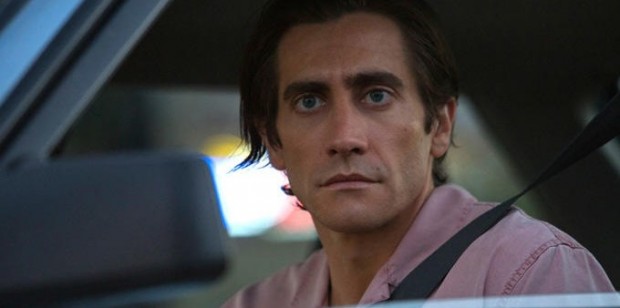
A stunning performance can elevate an ordinary script, yet Jake Gyllenhaal shows that first-time director Dan Gilroy has been absorbing what became of his various writing projects over the years. Here, Gilroy attacks the norm with his screenplay. We aren’t so much introduced to Gyllenhaal’s Lou Bloom as he announces his presence in the world of LA at night. Bloom is the anti-hero of the film, and yet you root for him throughout. Part of that is simply because he is the character we follow, but part of it is that he also exposes the deep-rooted reality of the news media. Bloom is a nightcrawler, who arrives on the scenes of accidents to record them with his camera and sell them to the morning news. But more than a skewering of the news, I found this to be a keenly precise character study of a man who succeeds precisely because he has a lack of empathy, a trait that might win you praise in other places. Gyllenhaal rarely blinks on camera, is visibly gaunt, and gives off an intensity that makes you uncomfortable. But the film is also brilliantly filled with touches of humor, evidenced by his long-winded rants that sound like they were stripped from a self-help book or the relationship he has with Nina (Rene Russo). Nightcrawler is intense, riveting, and darkly hilarious in all of the best ways.
2. Moebius (Kim Ki-duk)
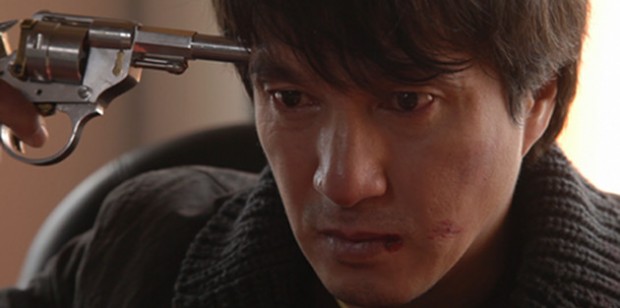
This will easily rank as one of the oddest entries on any of our top 10 lists, and that’s precisely why I fell in love with South Korean director Kim Ki-duk’s Moebius. The film showcases the ability that keen direction can have on even the most unusual of scripts — and oddball. disturbing, over-the-top, horrific, and frustrating are all apt adjectives for Moebius, a film that works because the acting and direction never let the viewer relax. Everyone is incredibly committed to this film, which revolves around several males being castrated, and the nature of what it means to be a man without the normal means of sexual interaction. Silence has a profound effect as none of the characters speak. It’s not a silent film, as grunts and groans are heard, but the lack of dialogue is worked around with knowing looks or onscreen text seen through a phone or computer screen. Themes revolve around dealing with trauma, mental disturbance, infidelity, and family, as well as the obvious way we interact sexually. People walked out of my screening at last year’s Fantastic Fest, but I think that, if you can stomach the wicked actions, you’ll be rewarded with one of the year’s most unique cinematic experiences. This is precisely why film is a unique art form, where both sound and image can orchestrate what would otherwise be flat-out unbearable.
1. Boyhood (Richard Linklater)
By now the awards season gluttony has already proclaimed this film as the near-consensus best of 2014. I’m not here to argue that point, though. I’d rather note that the unique nature of Richard Linklater’s 12-year opus is one precluding it from likely ever being done again. It is astounding that Boyhood exists at all when so many projects fail to materialize in significantly less time. There was a perfect storm here. As much credit as Linklater is given for this achievement — which should do nothing less than reward him with a Best Director Oscar win — something should be said for the fact that IFC Films bankrolled the effort, known as “The Twelve-Year Project” for over a decade. Jonathan Sehring, head of IFC, was the man that kept the project from ever being messed with or cut apart, and, in an industry known for rapid turnover and a lack of patience, Sehring showed remarkable qualities fit for a soothsayer. Beyond that, though, Boyhood is a film that is masterfully about reality and what it means to grow up today. It’s a searching, brave piece of art that works precisely because it rarely treads down the paths of what we’ve come to know as dramatic cinema.

